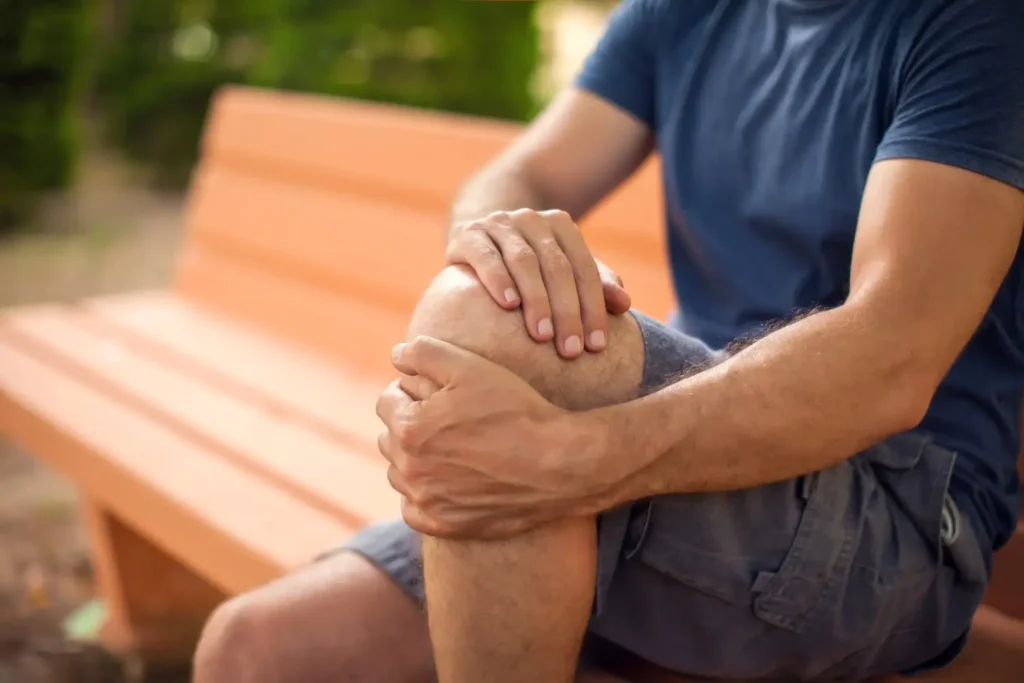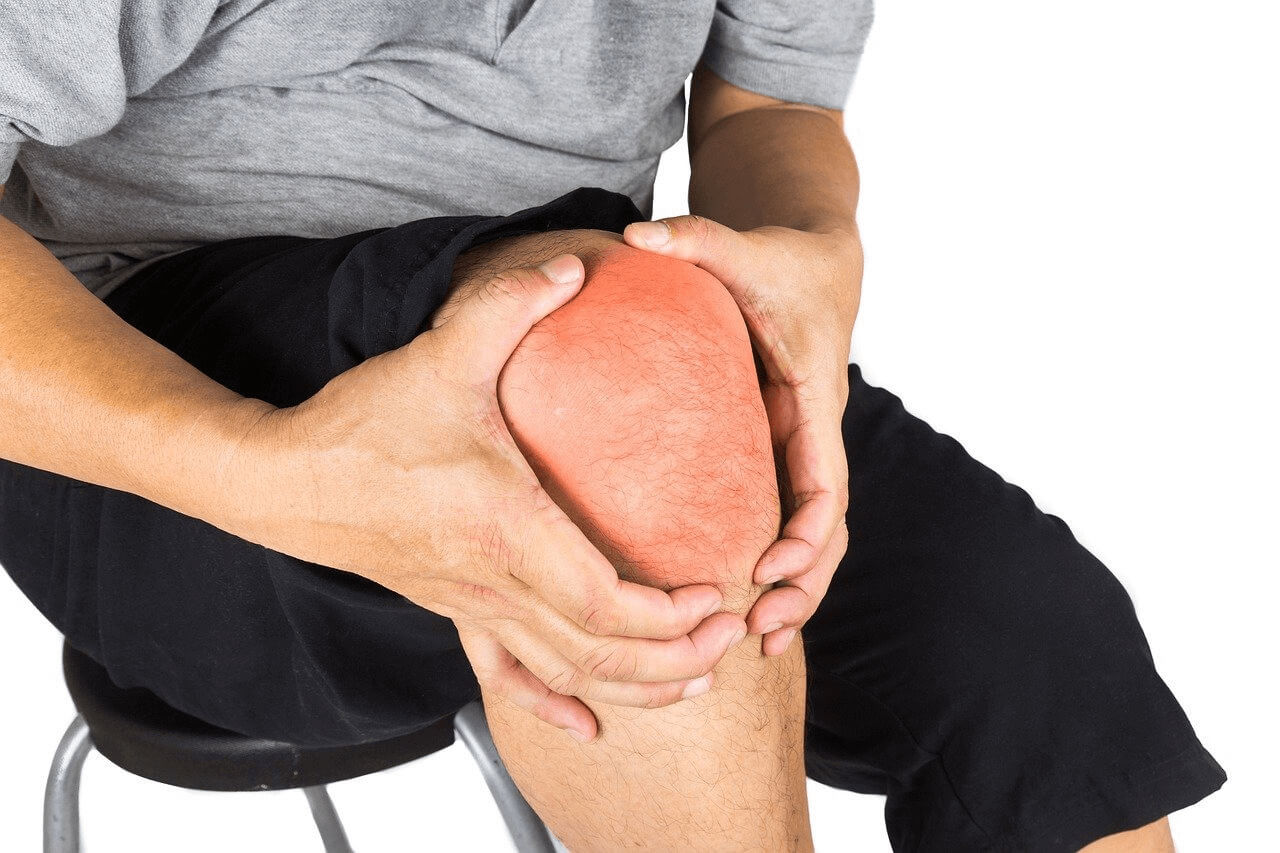Introduction:
Knee pain affects mobility and quality of life. Accurate diagnosis and effective treatment are essential for relief and recovery. For expert care, call (973)-922-9515 to book an appointment.
Key Takeaways:
- Common Causes: Includes osteoarthritis, tendinitis, bursitis, meniscus tears, ligament injuries, and gout.
- Key Symptoms: Experience pain, swelling, stiffness, tenderness, limited movement, and knee instability.
- Accurate Diagnosis: Involves medical history, physical exams, and imaging tests like X-rays or MRIs.
- Effective Treatments: Utilize injection therapies such as corticosteroids, hyaluronic acid, PRP, prolotherapy, and stem cells for targeted pain relief.
- Professional Care: Seeking expert medical advice ensures personalized treatment and optimal recovery outcomes.
What is Knee Pain?
Knee pain is a prevalent issue affecting individuals of all ages, significantly impacting mobility and quality of life. Proper diagnosis is essential for effective treatment, targeting the underlying cause of your discomfort.
What Are Common Causes of Knee Pain?
- Osteoarthritis: This degenerative condition involves the gradual breakdown of cartilage, leading to inflammation, stiffness, and pain over time. Symptoms often include joint pain, swelling, and decreased range of motion.
- Tendinitis: Inflammation of the tendons, commonly seen in athletes due to repetitive stress, results in pain and tenderness around the affected tendon. Symptoms may include pain during movement, swelling, and discomfort when pressure is applied.
- Bursitis: Inflammation of the fluid-filled sacs (bursae) in the knee, often due to overuse or injury, causes pain, swelling, and warmth around the knee. Symptoms typically worsen with movement or pressure on the knee.
- Meniscus Tear: A tear in the cartilage of the knee caused by trauma or sudden twisting, leading to pain, swelling, and limited movement. Symptoms can include a feeling of catching or locking in the knee, difficulty fully extending the leg, and pain during activity.
- Ligament Injuries: Tears in knee ligaments, such as the ACL or MCL, commonly occur from sports or falls, resulting in pain, swelling, instability, and difficulty moving the knee. Symptoms often include a feeling of the knee giving way or buckling.
- Gout: This type of arthritis, caused by a buildup of uric acid crystals in the joint, results in sudden, severe pain, redness, and swelling in the knee. Symptoms usually include intense pain and swelling, often affecting one joint at a time.
Symptoms of Knee Pain
- Pain: Often localized around the knee joint, the pain may be sharp, aching, or throbbing. It can occur during movement or at rest.
- Swelling: The knee may appear swollen or puffy due to inflammation or fluid accumulation. Swelling can result from injury, arthritis, or bursitis.
- Stiffness: The knee may feel stiff, making it difficult to bend or straighten fully. Stiffness is common after periods of inactivity or in the morning.
- Tenderness: The area around the knee may be tender to the touch, particularly over the joint or along the tendons and ligaments.
- Limited Range of Motion: Difficulty in fully bending or extending the knee can affect mobility. This may be due to pain, swelling, or structural damage.
- Instability: A feeling that the knee is going to give way or buckle, which can occur with ligament injuries or severe pain.
- Crepitus: A sensation of grinding, popping, or clicking within the knee joint during movement, often associated with arthritis or cartilage damage.
- Warmth: The knee may feel warm or hot to the touch, indicating inflammation or infection.
- Redness: In some cases, the skin around the knee may appear red, which can be a sign of infection or severe inflammation.

How Is Knee Pain Diagnosed?
Our skilled doctors conduct a thorough medical history review, and physical examination, and utilize advanced diagnostic tools like X-rays and MRIs to determine the cause of your knee pain. In some cases, joint fluid analysis may be required for a more accurate diagnosis.
Injection Therapies for Knee Pain Treatment
Injection therapies offer a targeted approach to relieving knee pain by delivering medication directly to the affected area. These non-invasive treatments can effectively reduce pain, and inflammation, and improve knee function. There are several commonly used injection therapies for knee pain.
Corticosteroid injections are anti-inflammatory medications that help reduce swelling and pain in the knee, particularly for conditions like osteoarthritis, bursitis, and tendonitis. These injections work by delivering corticosteroids directly into the knee joint, reducing inflammation and providing relief.
The effects can last for several weeks or even months, depending on the severity of the condition. The benefits of corticosteroid injections include quick pain relief, minimal downtime, and the potential to delay the need for surgery in severe cases.

Hyaluronic acid injections, also known as viscosupplementation, are another option, particularly for treating osteoarthritis. Hyaluronic acid is a naturally occurring substance in the joint fluid that acts as a lubricant and shock absorber. In osteoarthritis, the natural levels of hyaluronic acid decrease, leading to joint pain and stiffness. By replenishing this fluid, the injections improve joint lubrication and function, providing pain relief that can last for up to six months and potentially delaying the need for surgery.
Platelet-rich plasma (PRP) injections use a concentrated form of the patient’s blood platelets to promote healing and reduce knee pain. The process involves drawing blood from the patient, processing it to concentrate the platelets, and injecting them into the knee. PRP injections release growth factors that stimulate tissue repair and reduce inflammation, effectively treating tendonitis, ligament injuries, and osteoarthritis. This therapy promotes natural healing processes without the use of synthetic medications.
Prolotherapy is another injection therapy that stimulates the body’s healing response. It involves injecting a natural irritant solution, often sugar-based, into the areas of the knee experiencing pain. This triggers a mild inflammatory reaction, prompting the body to repair the injured tissues and strengthen the surrounding structures. Prolotherapy is particularly suitable for chronic knee pain, ligament injuries, and osteoarthritis, and can lead to long-term pain relief and improved knee stability.
Finally, stem cell injections offer a regenerative treatment option by using the patient’s stem cells to repair damaged tissues in the knee. Stem cells are harvested from the patient’s bone marrow or fat tissue and then injected into the knee. These cells have the potential to develop into different types of cells, such as cartilage, muscle, or bone, aiding in the repair of damaged tissues. Stem cell injections promote tissue regeneration and healing, and may reduce the need for surgical intervention, particularly for conditions like osteoarthritis and meniscus tears.
Contact Us
To make an appointment, you can call us at (973) 922-9515. Also, you can book an appointment online. If you have any queries, you can also email us at iossmedical@gmail.com.

